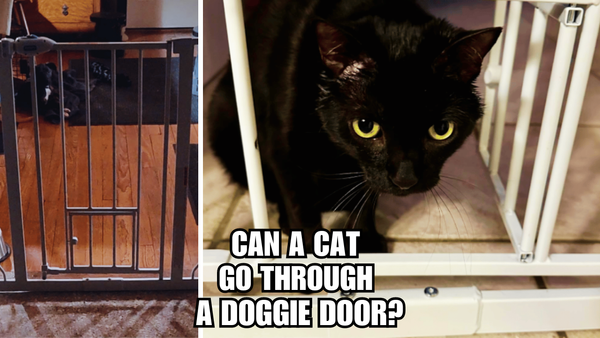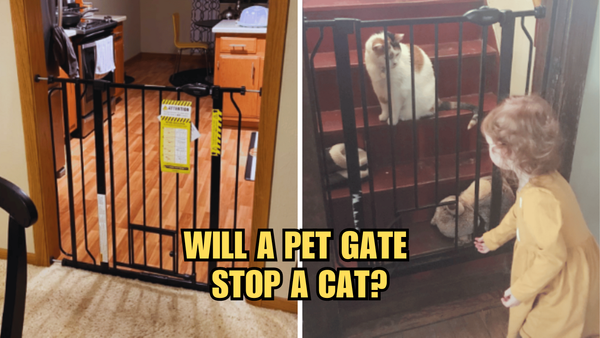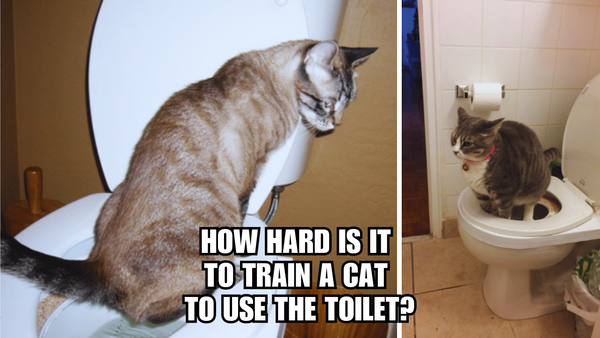Key Takeaways:
- Melatonin can be administered to cats, but it's essential to consult with a veterinarian first.
- The correct dosage of melatonin for cats depends on several factors, including the cat's weight and the condition being treated.
- While melatonin can help with certain conditions, it's important to be aware of potential side effects and interactions with other medications.
Cats, just like humans, can experience disruptions in their sleep patterns and other health issues that may lead to the consideration of melatonin as a treatment. As a cat owner, you might wonder, "Can I give melatonin to a cat?" This article will delve into the topic of melatonin for cats, exploring its uses, benefits, and potential risks.
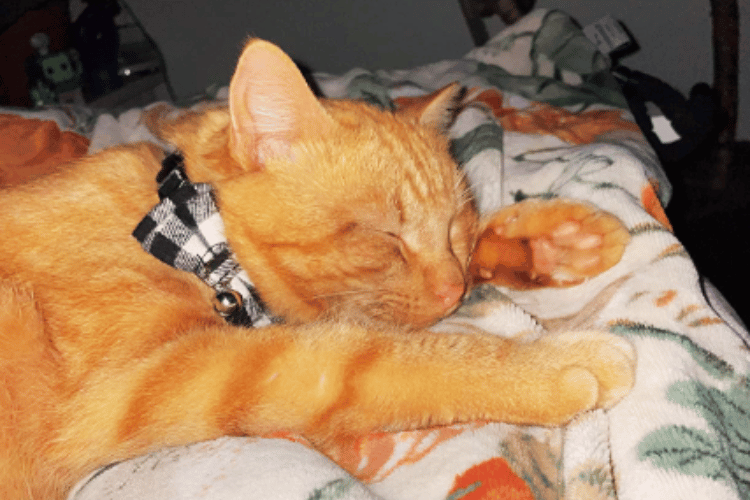
What is Melatonin and How Does It Work in Cats?
Melatonin is a natural hormone produced by the pineal gland in the brain. It plays a crucial role in regulating the sleep-wake cycle in both humans and animals. In cats, melatonin can have a relaxing effect, potentially helping with sleep issues and behavioral problems.
Is Melatonin Safe for Cats?
Generally considered safe when prescribed by a veterinarian, melatonin can be used to treat various conditions in cats. However, it's important to ensure the correct dosage and to be aware of any potential side effects or interactions with other medications.
Understanding Sleep Disorders in Cats
Cats can suffer from sleep disorders that disrupt their natural sleep cycles. These issues can be caused by anxiety, cognitive dysfunction in older cats, or other health problems. Melatonin supplements may help regulate sleep patterns and improve overall well-being.
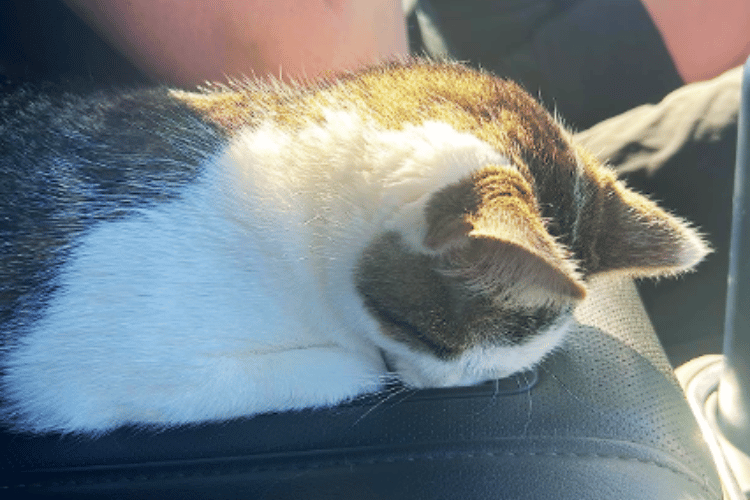
The Benefits of Melatonin for Cats
Melatonin has been found to offer several benefits for cats, including managing sleep disorders, reducing anxiety, and even treating conditions like hair loss (alopecia) and helping to regulate fertility cycles in female cats.
Potential Side Effects of Melatonin in Cats
While melatonin is generally safe, there can be adverse reactions. Side effects of melatonin in cats may include sleepiness, gastrointestinal upset, or changes in behavior. It's crucial to monitor your cat for any unusual symptoms after administering melatonin.
Melatonin Dosage for Cats
Determining the correct melatonin dosage for a cat is vital. The dose will depend on the cat's weight, age, and the specific condition being treated. Always consult your veterinarian to establish the appropriate dosage for your cat.
Melatonin Supplements for Cats: What to Look For
When choosing melatonin products for your cat, it's important to select high-quality supplements. Look for products specifically designed for pets, and avoid those with additives that could be harmful to your cat.
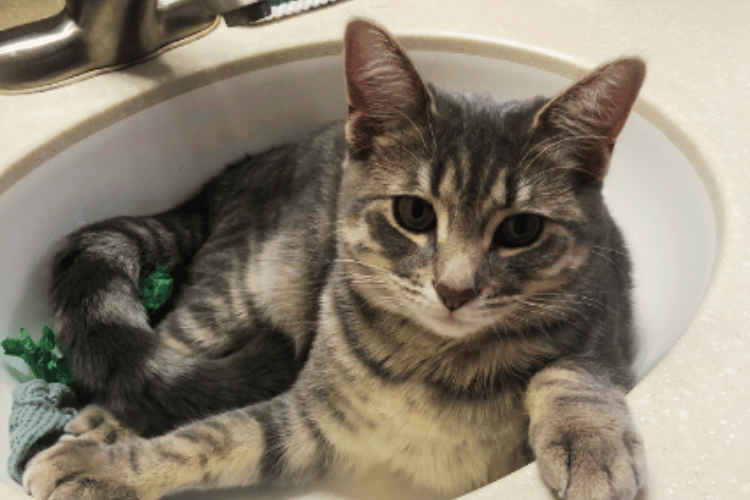
Interactions with Other Medications
Melatonin can interact with other medications your cat may be taking. Before giving melatonin to your cat, discuss with your veterinarian to ensure it won't interfere with any ongoing treatments.
The Role of the Pineal Gland in Cats' Sleep Cycles
The pineal gland regulates the production of melatonin in cats, influencing their sleep cycles. Understanding this gland's function can help cat owners recognize the importance of maintaining a healthy sleep-wake cycle for their pets.
How Much Melatonin Can I Give My Cat?
The question of "how much melatonin can I give my cat" is a common one. The answer varies, and only a veterinarian can provide a safe and effective dosage tailored to your cat's needs.
Melatonin as a Sleep Aid for Cats with Insomnia
When our feline friends struggle with sleep problems, it's only natural for pet owners to seek solutions. Melatonin is a hormone that's been widely recognized as a sleep aid in humans, and it's gaining attention for its potential benefits in cats with insomnia.
Cats melatonin can be particularly helpful in regulating the sleep-wake cycle, which is crucial for a cat's overall well-being. If your cat is restless at night or seems to have trouble settling down, a melatonin product might just be the gentle nudge their body needs to embrace the land of dreams.
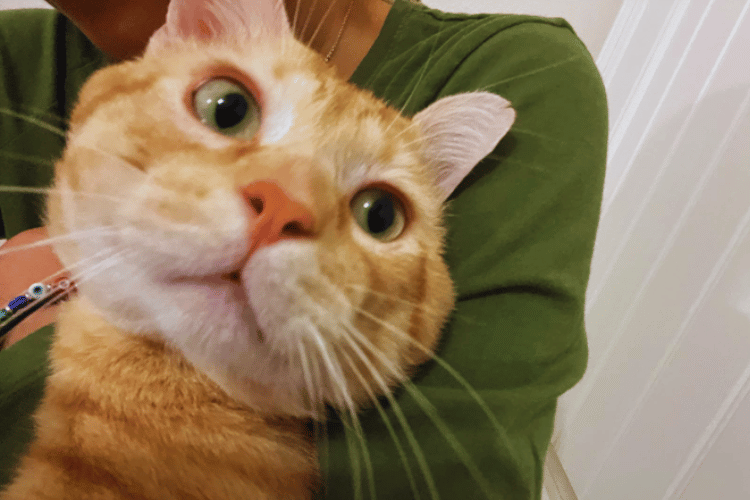
However, it's important to approach melatonin use with caution. Unlike in dogs, where melatonin use is more commonly discussed, the research on cat melatonin is still in its infancy. Adult cats, especially those with chronic sleep disturbances, may benefit from melatonin, but it's essential to consult with a veterinarian first.
They can provide guidance on whether a melatonin supplement is appropriate for your cat's specific situation and recommend reputable brand names that are safe for your pet. Remember, what works for humans doesn't always translate directly to our feline companions.
Incorporating Melatonin into Your Cat's Routine
Introducing a new supplement like melatonin into your cat's routine should be done thoughtfully. Melatonin is a hormone that naturally occurs in a cat's body, playing a key role in managing their sleep cycles. If you've decided to try a melatonin product for your cat, consider incorporating it into their evening routine. This could mean mixing the supplement with their dinner or administering it as a treat before bedtime. The goal is to align the supplement's effects with your cat's natural inclination to wind down as the night approaches.
It's also worth noting that melatonin isn't just a standalone solution. It can be part of a broader strategy to address your cat's sleep issues. For instance, creating a calm and comfortable sleeping environment, maintaining a consistent feeding schedule, and ensuring your cat has ample opportunity for play and exercise during the day can all contribute to better sleep. When used in conjunction with these practices, melatonin can help reinforce your cat's natural sleep-wake cycle, leading to more peaceful nights and more energetic days.
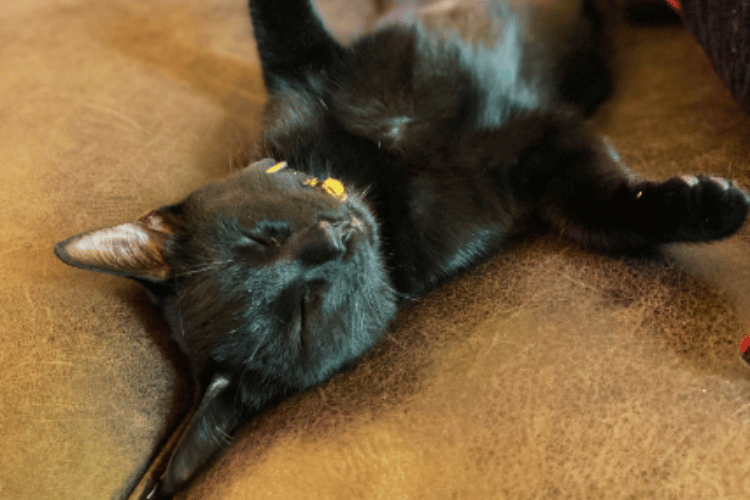
Melatonin for Behavioral Issues in Cats
Behavioral issues in cats, such as anxiety or aggression, can sometimes be alleviated with the use of melatonin. Its calming effect can contribute to a more relaxed and manageable demeanor in some cats.
Melatonin and Hair Loss in Cats
Melatonin has been used to treat hair loss in cats, a condition known as alopecia. It can promote hair growth and improve the condition of the cat's coat, though more research is needed to fully understand its effectiveness.
Melatonin and Female Cats: Fertility and Health
In female cats, melatonin can play a role in managing fertility and reproductive health. It may be used to regulate breeding cycles or treat conditions related to the reproductive system.
The Impact of Melatonin on Older Cats
Older cats may experience changes in their sleep patterns or cognitive function. Melatonin can help address these issues, promoting better sleep and potentially improving cognitive symptoms.
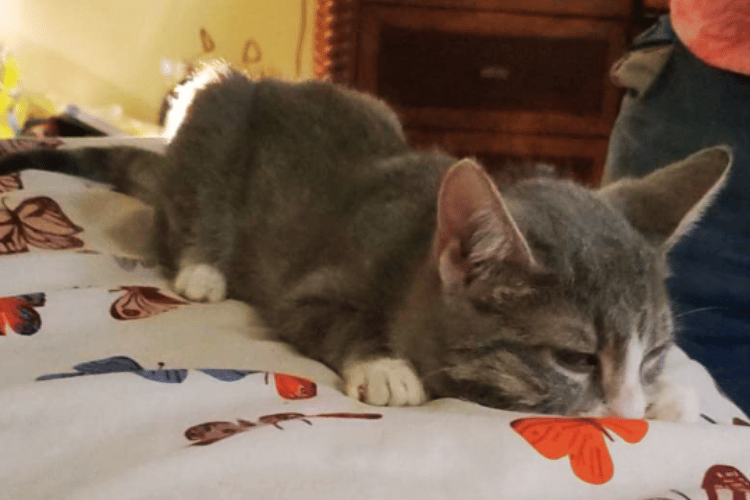
The Natural Hormone and Its Effects on Cats
As a natural hormone, melatonin can have a variety of effects on a cat's body. Understanding these effects is crucial for cat owners considering melatonin as a treatment option.
Can Melatonin Help with Jet Lag in Cats?
Cats may experience jet lag after travel, disrupting their sleep cycles. Melatonin can be used to help reset their internal clock and alleviate the symptoms of jet lag.
The Importance of Veterinary Medicine in Melatonin Use
Veterinary medicine plays a key role in the safe administration of melatonin to cats. A veterinarian can provide valuable insights and guidance on using melatonin effectively and responsibly.
Melatonin and Other Hormones in Cats
Melatonin interacts with other hormones in a cat's body. It's important to understand these interactions to avoid disrupting the cat's natural hormonal balance.
The Need for More Research on Melatonin in Cats
While melatonin shows promise for various uses in cats, limited studies mean that more research is needed. Cat owners should stay informed about the latest findings in veterinary medicine regarding melatonin use.
Giving Melatonin to Cats: A Case Study
Practical examples, such as case studies, can illustrate the effects of melatonin on cats. These real-life scenarios can help cat owners understand the potential outcomes of melatonin treatment.
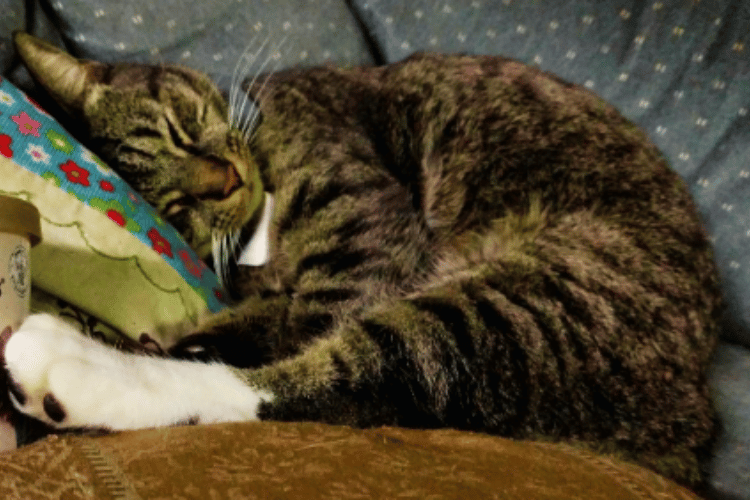
Summary
Melatonin can be a helpful supplement for cats with sleep disorders, anxiety, hair loss, and other health issues. However, it's essential to consult with a veterinarian to determine the appropriate dosage and to monitor for any side effects. While melatonin is generally safe for cats, it should be used with caution and under professional guidance.
FAQ Section
Can I give my cat the same melatonin supplement I use?
No, it's important to use melatonin products specifically formulated for cats. Human supplements may contain additives that are harmful to pets.
How long does it take for melatonin to work in cats?
The effects of melatonin can vary. Some cats may show signs of improvement within a few hours, while for others, it may take several days to notice a change.
Can melatonin be used long-term for cats?
Melatonin can be used long-term under the supervision of a veterinarian. Regular check-ups are important to ensure the continued safety and effectiveness of the treatment.
Thank you for visiting LegitLists we hope this helps you make a legitimate choice!




